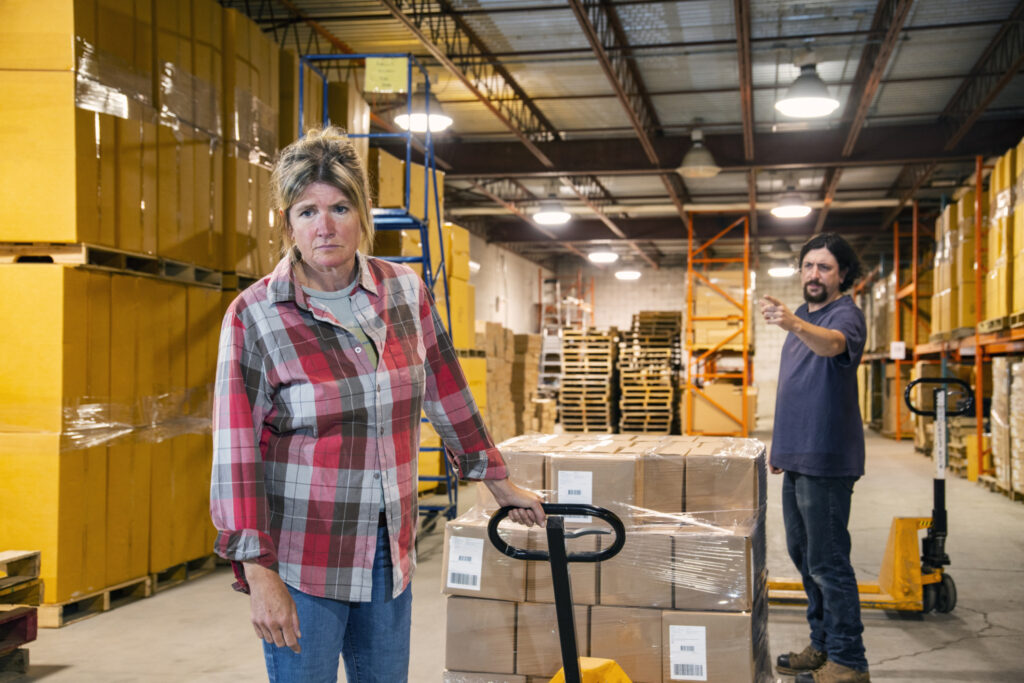Threats, physical harm, top crimes against women and minority truckers: report
Female truck drivers, and their male counterparts who identify as visible minorities, are the most likely truckers to face assaults on the job, research by the U.S. Federal Motor Carrier Safety Administration (FMCSA) has found. And they aren’t the only ones at risk.
“Threats of harm and actual physical harm are the most common types of crime committed against women and minority truckers; however, they are experienced differently among the two groups,” researchers noted after an online survey of 653 truckers, leading to the Crime Prevention for Truckers report.

Female drivers were more exposed to crimes of sexual nature. One third of women responded they’ve been touched inappropriately at least once during the last two years on a job. They were two to four times more likely to be touched without consent, compared to non-minority male colleagues.
Women drivers are also more likely to be pushed, hit or physically hurt. While 15% of female respondents indicated this experience in the survey, 13% of non-minority men and 7% of minority men have also reported such assaults.
Contributing factors to workplace violence
The lack of accountability, responsiveness, and follow-up by motor carrier HR departments were seen as contributing to crimes committed against truckers, especially women. About half of all crimes remain underreported.
“They [respondents] did not think it would make a difference or they have to deal with it anyway,” the report said of such situations.
The most common type of harassment involved name-calling, followed by verbal threats.
More than half of those surveyed have reported incidents like name-calling and verbal insults. However, compared to minority and non-minority males, women were called unpleasant names more often.
While women and minority men made up the biggest percentage of victims in four out of the six identified harassment categories, non-minority men made accounted for 44% of those who faced verbal threats.
Both categories of surveyed male drivers were more likely than women to face weaponized threats (guns, knives, wrenches, or tire thumpers) and vandalized trucks or cargo. While just under 20% of women reported such offences, around 25 % of minority and non-minority men became victims of such crimes.
Social vulnerabilities
The study suggests that minority groups’ social vulnerabilities are the leading cause of the violence they face.
“Motor carriers’ supply chains, truck drivers’ poor attitudes toward other nationalities, and minorities’ lack of English language skills are considerable contributing factors to why minorities experience the crimes they do.”
The common patterns of the offences against truck drivers were identified – and they are universal for all drivers, regardless of gender or minority status.
While harassment can occur at any place relevant to the trucking industry, truck stops are the most common location, followed by cargo delivery and pick-up places, along with the fueling stations, the study reads. From 15% to 33% of respondents have also reported being harassed while inside the truck. Urban areas were considered more dangerous than rural surroundings.
In most cases, surveyed truck drivers said the perpetrators were other truck drivers that they didn’t know. However, 15% of women reported they were harassed by other truck drivers at the company where they worked, and 11% identified trainers as offenders.
Respondents’ recommendations to improve truck safety included enhancing safety at trucking facilities, providing additional parking, and establishing better communication to create safe and efficient travel plans for the drivers.
Since a large portion of drivers said they never received any type of personal safety and protection training, FMSCA calls on employers to provide such training to drivers, along with developing educational material to increase harassment awareness.
Have your say
This is a moderated forum. Comments will no longer be published unless they are accompanied by a first and last name and a verifiable email address. (Today's Trucking will not publish or share the email address.) Profane language and content deemed to be libelous, racist, or threatening in nature will not be published under any circumstances.